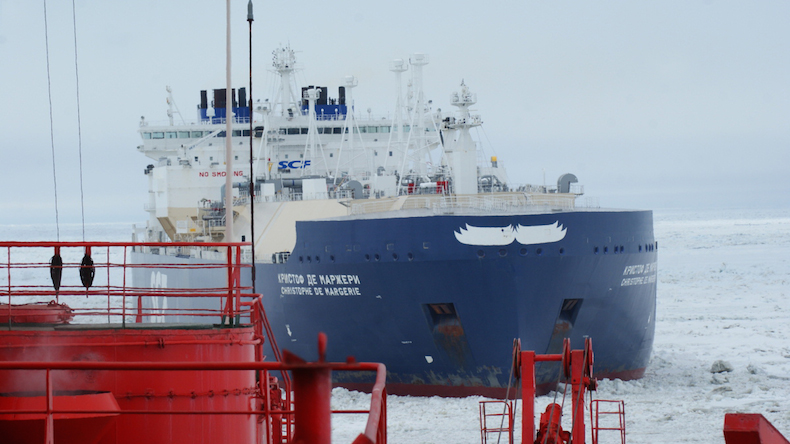KEY POINTS
- Russia plans LNG transfers to address tanker shortages.
- The strategy supports Novatek’s Arctic LNG 2 project.
- New facilities will allow for year-round LNG shipments.
Russia has declared its intention to transport gas condensate and liquefied natural gas (LNG) from ship to ship in the Barents and Bering Seas.
In an attempt to get around Western sanctions and a lack of ships that can operate in Arctic waters, the country is taking this action to free up ice-class tankers for Novatek, its biggest LNG exporter.
Moreover, Russia can increase the number of its specialist tankers available for shipping via the Northern Sea Route to Asia by transferring LNG at sea to regular vessels.
The Kresta Bay in the Bering Sea and Chosha Bay in the Barents Sea will house the new facilities. These locations were picked to guarantee that transfers occur while movement is unhindered by ice.
Strategic move for Arctic LNG 2
This ship-to-ship transfer strategy is critical for the success of Novatek’s Arctic LNG 2 project. Western sanctions have limited Russia’s access to ice-class tankers, essential for carrying LNG from the Arctic to Asian markets.
According to Reuters, loadings of Russian LNG are set to be banned from European Union ports starting in March 2025, further complicating logistics for Novatek and the Russian energy sector.
However, the new transfer points will each handle up to 4.1 million cubic meters of LNG and 1.4 million cubic meters of gas condensate annually. This setup will allow Russia to keep its Arctic LNG shipments on schedule while reducing the logistical strain on its ice-class tanker fleet.
Increased efficiency amid sanctions
Off the coast of Murmansk, Novatek already employs a comparable transfer system, which permits continuous LNG supplies.
Despite global obstacles, Russia will be better equipped to sustain a consistent flow of LNG exports if ship-to-ship transfers are expanded in more locations.
When the new facilities are up and running, they will be crucial in helping Russia overcome its continuous shipping restrictions and maintaining the stability of the energy industry amid geopolitical unrest.



